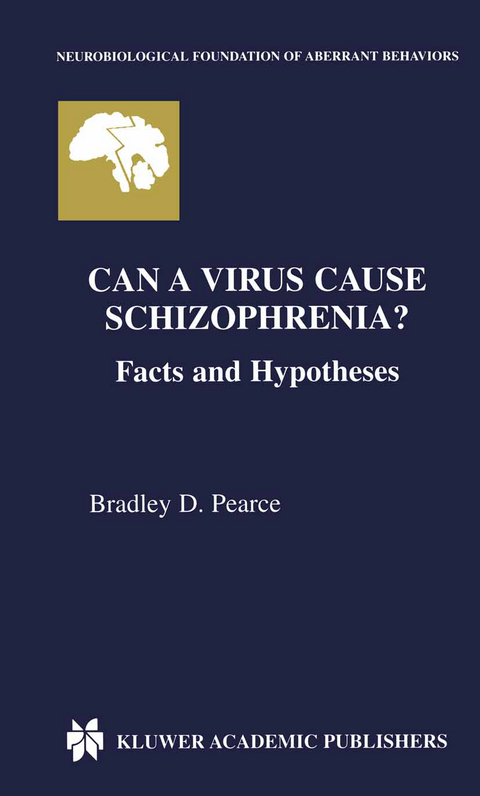
Can a Virus Cause Schizophrenia?
Springer-Verlag New York Inc.
978-1-4613-4863-4 (ISBN)
Nevertheless, one cannot ignore the growing number of well-performed studies pointing to the role of viral infections as important antecedents of schizophreniaand other disorders inthe schizophreniaspectrum. Inthe last 30 years there have been hundreds of articles in peer-reviewed journals presenting evidenceorpositingtheoriestosuggestthatatleastsomecasesof schizophrenia have a viral origin. Moreover, many schizophrenia experts have been calling for the recognition that schizophrenia isa heterogeneous group of disorders that may have different causes. This idea of disease heterogeneity is reaching a crescendo, and there is undoubtedly a place for viruses among alternative etiologies; but we have to look. The intellectual climate tolooknowisbetterthanitwas20yearsago,inpartbecause inthe last 2 decades a number of chronic diseases of unknown etiology (e.g. gastric ulcers, Kaposi's sarcoma, hepatocellular carcinoma) have been ascribedtoinfectiouscauses.
1 Introduction and History.- 1.1 A brief history of the viral hypothesis.- 2 Fundamentals of Viral Infections and Immune Responses in Humans.- 2.1 A primer on general virology.- 2.2 Immune response to viral infections.- 2.3 Persistent viral infections.- 3 Encephalitis and Schizophrenia.- 3.1 Viruses and schizophrenia: a plurality of theories.- 3.2 Psychosis in viral encephalitis.- 3.3 The validity gap for the encephalitis connection.- 3.4 Bona diseases virus.- 3.5 Viruses in other psychiatric diseases.- 4 Epidemiological Evidence.- 4.1 Epidemiological studies of the viral hypothesis.- 4.2 Seroepidemiological studies.- 4.3 Immune alterations in schizophrenia.- 5 The Role of Viral Infections During Neurodevelopment.- 5.1 Brain development.- 5.2 Immunology of the maternal-fetal unit.- 5.3 The viral-developmental hypothesis.- 5.4 Epidemiological studies of perinatal infections in adult schizophrenia.- 6 Model and Mechanisms.- 6.1 Specific models.- 6.2 A history lesson from oncology concerning the viral hypothesis.- 6.3 What a viral etiology of schizophrenia does not mean.- 6.4 Conclusion.
| Reihe/Serie | Neurobiological Foundation of Aberrant Behaviors ; 6 |
|---|---|
| Zusatzinfo | XI, 144 p. |
| Verlagsort | New York, NY |
| Sprache | englisch |
| Maße | 155 x 235 mm |
| Themenwelt | Geisteswissenschaften ► Psychologie ► Persönlichkeitsstörungen |
| Medizin / Pharmazie ► Medizinische Fachgebiete ► Neurologie | |
| Medizin / Pharmazie ► Medizinische Fachgebiete ► Psychiatrie / Psychotherapie | |
| Naturwissenschaften ► Biologie ► Humanbiologie | |
| Naturwissenschaften ► Biologie ► Zoologie | |
| ISBN-10 | 1-4613-4863-3 / 1461348633 |
| ISBN-13 | 978-1-4613-4863-4 / 9781461348634 |
| Zustand | Neuware |
| Haben Sie eine Frage zum Produkt? |
aus dem Bereich


